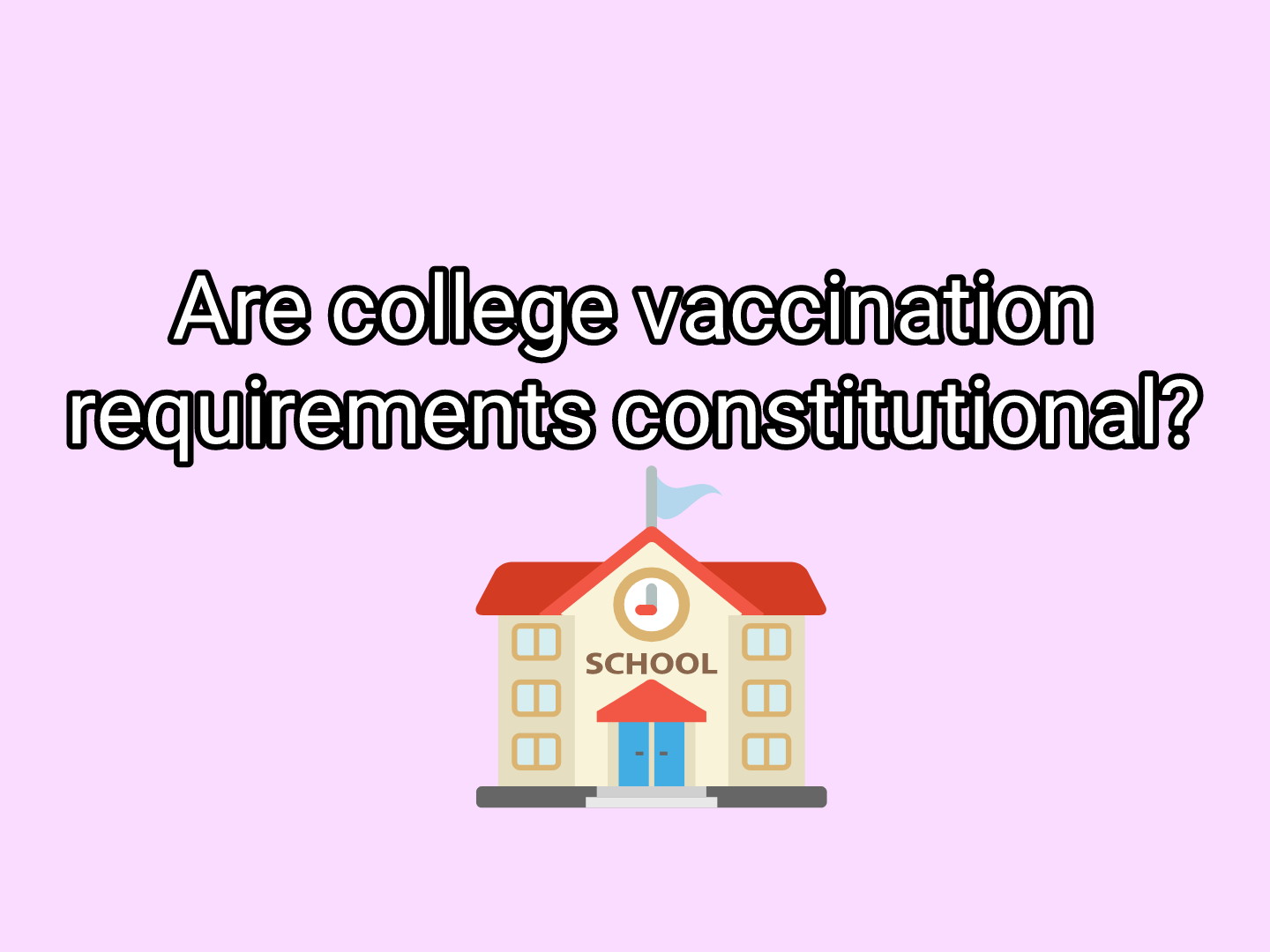- Free Consultation: (631) 352-0050 Tap Here to Call Us
University Can Mandate Covid Vaccine for Students

Long Island civil rights attorneys Famighetti & Weinick PLLC have been following the law concerning mandatory vaccinations. Recently, we blogged about the legality of workplaces requiring that employees be vaccinated. Throughout the pandemic, we opined that courts would give deference to government regulations aimed at curbing the spread of COVID-19, based on a 1905 Supreme Court case.
Throughout the summer of 2021, as vaccinations rates decline and the virus continues to spread, mandatory vaccination requirements are rolling out. Employers, governments, schools, colleges, and universities are all implementing vaccination requirement rules. In Indiana, Indiana University decided to require that all of its students must be vaccinated against COVID-19 to attend the school’s next semester.
Eight students challenged the University’s rule and the Seventh Circuit Court of Appeals heard the challenge. Today’s Long Island civil rights blog discusses the decision.
In Klassen v. Trustees of Indiana University, the Seventh Circuit reviewed the constitutionality of the University’s policy which requires all students to be vaccinated against COVID-19. Eight students challenged the requirement, arguing that the requirement violates their Fourteenth Amendment right to due process. The students asked the court to implement an immediate injunction, stopping the school from implementing the rule.
The Seventh Circuit needed only four pages of opinion to dismiss the student’s challenge and rule that the University’s requirement does not violate the Constitution. The Court relied heavily on the 1905 case, Jacobson v. Massachusetts. In Jacobson, the Supreme Court upheld a Massachusetts law which compelled all members of the public to get vaccinated against smallpox.
The Seventh Circuit ruled that the issue of vaccinations for college is easier to resolve than the issue in Jacobson. In Jacobson, the state required the entire public to be vaccinated, without exception. In contrast, Indiana University’s rule has exceptions to accommodate religious beliefs and medical conditions. (In those cases, instead of vaccinations, students must wear masks and undergo covid testing).
Further, the rule in Jacobson applied every adult member of the public. In contrast, the Indiana rule applies only to individuals attending the school. The Court suggested that individuals who do not want to be vaccinated, do not have attend Indiana University; those individuals can get education elsewhere.
The Court also noted that vaccination requirements are common in higher education and that many schools require vaccinations against measles, mumps, tetanus, and meningitis. Because close contact with others is inevitable at schools, and because vaccinations protect not only the individual vaccinated, but those that person comes in contact with, universities may decide how to keep other students safe.
The Court compared vaccinations to other actions Universities may take without offending the Constitution. The Court noted that the plaintiffs have a right to hold property, and the state cannot take property without due process. But, the plaintiffs surrender property to the state in the form of tuition, without violating the Constitution.
Similarly, under the First Amendment, states cannot dictate what people read or write, yet state colleges can nonetheless require that students read and write things that the students might prefer not to. Requiring that students follow a particular curriculum is not offensive to the Constitution.
Taking cues from these other examples, the Seventh Circuit concluded that if public colleges can require that students surrender property (tuition money) and that students read or write particular things as part of a curriculum, it seemed more than obvious that universities could impose other conditions implemented with the purpose of keeping the student population safe.
In sum, the Seventh Circuit ruled that state university’s requirement that students be vaccinated against COVID-19 is constitutional. This decision is useful in predicting how other courts across the country may rule on similar requirements.
But, the Seventh Circuit decision leaves open a few unanswered questions. First, the Court did not address that COVID-19 vaccines, as opposed to vaccines against for example, measles, mumps, and tetanus, does not have full FDA approval yet. The vaccines are approved only for emergency use. The Court did not address this concern asserted by many who currently oppose getting vaccinated right now.
Further, the Court determined that students who do not want the vaccine, can attend other schools which do not require the vaccination. But, as presumably more and more colleges and universities impose vaccination requirements and educational opportunities decline for the unvaccinated, will those conditions alter a due process analysis? We’ll have to wait to find out.
As vaccination requirements continue to roll out across the country, challenges to those rules will continue. If you have questions about mandatory vaccination rules, contact a Long Island civil rights lawyer at Famighetti & Weinick PLLC. We also serve the Hudson Valley in New York. Our phone number for both locations is 631-352-0050.
Are College Vaccination Requirements Constitutional?








